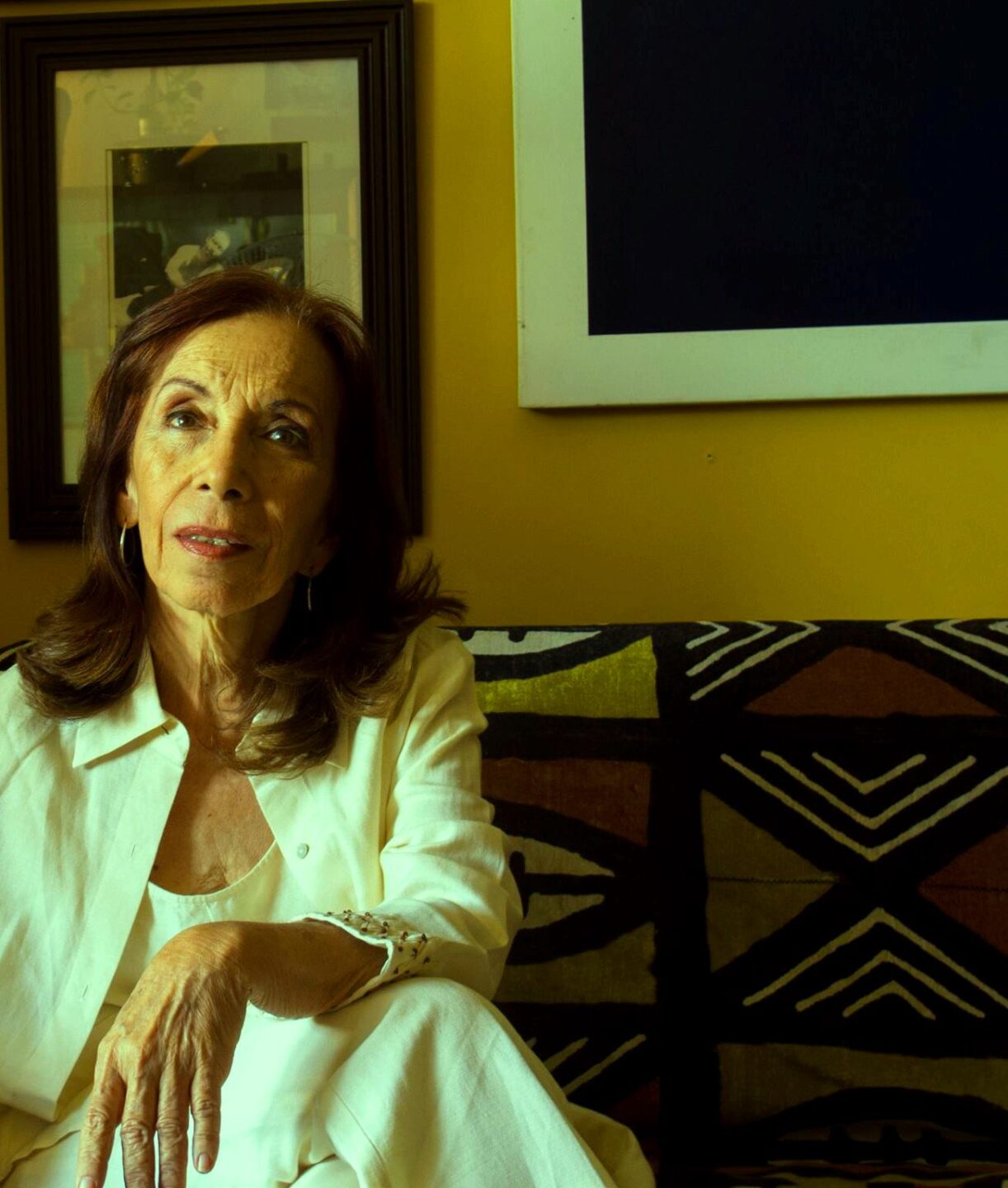
Laura Antillano
Laura Antillano was born in Caracas, Venezuela in 1950. She studied literature at the Universidad del Zulia, where she later became a lecturer in children’s literature and director of the university’s puppet theatre. In the early seventies she spent time in Italy and Chile, then in the USA.
Since her début, “La bella Època” (1969; t: The Belle Epoque), she has published a further seven volumes of short stories. In addition to that, Antillano has written four novels, several books for children and young adults, two poetry anthologies and screenplays for film and television. In her narrative work Antillano deals with the connections and the rifts between individual and collective memories and identities, especially those of women.
Eleven years after “La muerte del monstruo come-piedras” (1971; t: The death of the stone-eating monster), her second novel “Perfume de gardenia” (1982; t: Gardenia perfume) followed, Antillano’s first historical novel. It tells of a young writer who looks into her mother and grandmother’s histories, reconstructing a female genealogy of Venezuela. The novel “Solitaria Solidaria” (1990; t: The solidary solitary) again presents a female character in search of historical traces: in some archives, a university lecturer finds the notes of a rebellious woman who lived and wrote in the late nineteenth century. While reading these journals, the protagonist stumbles on the unofficial and forgotten history of her country and at the same time reflects on her own life. A female tradition is once more created � and the two voices eventually fuse into one. Her most recent novel, “Las aguas tenían reflejos de plata” (2002; t: The waters sparkled silver) also focuses on the country’s history: it tells the story of a Venezuelan family in in the late eighteen hundreds.
The author has been awarded many prizes in her home country, including in 1977 a prize by the newspaper “El Nacional” for her story “La luna no es pan de horno” (t: The moon isn’t oven bread). She was in fact the first female recipient of the prize. In 1987, Antillano won the prize for best scriptwriter in the children’s and young people’s film category in the Mérida Film Festival for “Con cierto corazón”. Her poetry anthology “Migajas” (2004; t: Bread crumbs) was praised at the 2004 biannual José Rafael Pocaterra Literature Festival.
Laura Antillano currently has a regular column in the newspaper “Notitarde”, works for a radio programme, and lectures in Venezuelan literature at the University of Carabobo. She regularly holds writing courses and, with the Centro Nacional del Libro and the Casa Nacional de las Letras Andrés Bello, prepares the yearly meeting of literature for children and young people. Antillano lives in Valencia, Venezuela
© international literature festival berlin
La bella época
Monte Avila
Caracas, 1969
La muerte del monstruo-come-piedra
Monte Avila
Caracas, 1970
Haticos casa no. 20
Dirección de Cultura de la Universidad del Zulia
Maracaibo, 1975
Un carro largo se llama tren
Monte Avila
Caracas, 1975
Cuentos de película
Publicaciones Seleven
Caracas, 1985
Dime si adentro de ti no oyes tu corazón partir
Fundarte
Caracas, 1983
La luna no es pan de horno
Monte Avila
Caracas, 1987
Solitaria Solidaria
Planeta
Caracas, 1990
¡Ay! que aburrido es leer: el habito lector y el cuento de la infancia
Universidad de Carabobo
Maracaibo, 1991
Jacobo ahora no se aburre
La Letra Voladora
Maracaibo, 1991
Tuna de mar
Fundarte
Caracas, 1991
Diana en la tierra Wayúu
Alfaguara
Santafe de Bogota, 1992
Dime si dentro de ti no oyes a tu corazón partir
Fundarte
Caracas, 1992
Perfume de gardenia
La letra voladora
Valencia (Venezuela), 1996
Una Vaca Querida
CIDCLI : Consejo Nacional para la Cultura y las Artes
Mexiko, 1996
Apuntes sobre literatura para niños
Ed. del Gobierno de Carabobo
Valencia, 1997
De la escuela salen los caminos
El caimán ilustrado
Valencia, 1999
La Palmera Luminosa
El caimán ilustrado
Valencia, 1999
Las aguas tenían reflejos de plata
Alfaguara
Caracas, 2002
Migajas
El otro, el mismo
Mérida, 2004
El verbo de la madre : obra poética
El Otro, El Mismo
Mérida, 2005
Once cuentan en sábado
Universidad de Carabobo
Venezuela, 2005
Übersetzer: Sabine Giersberg
